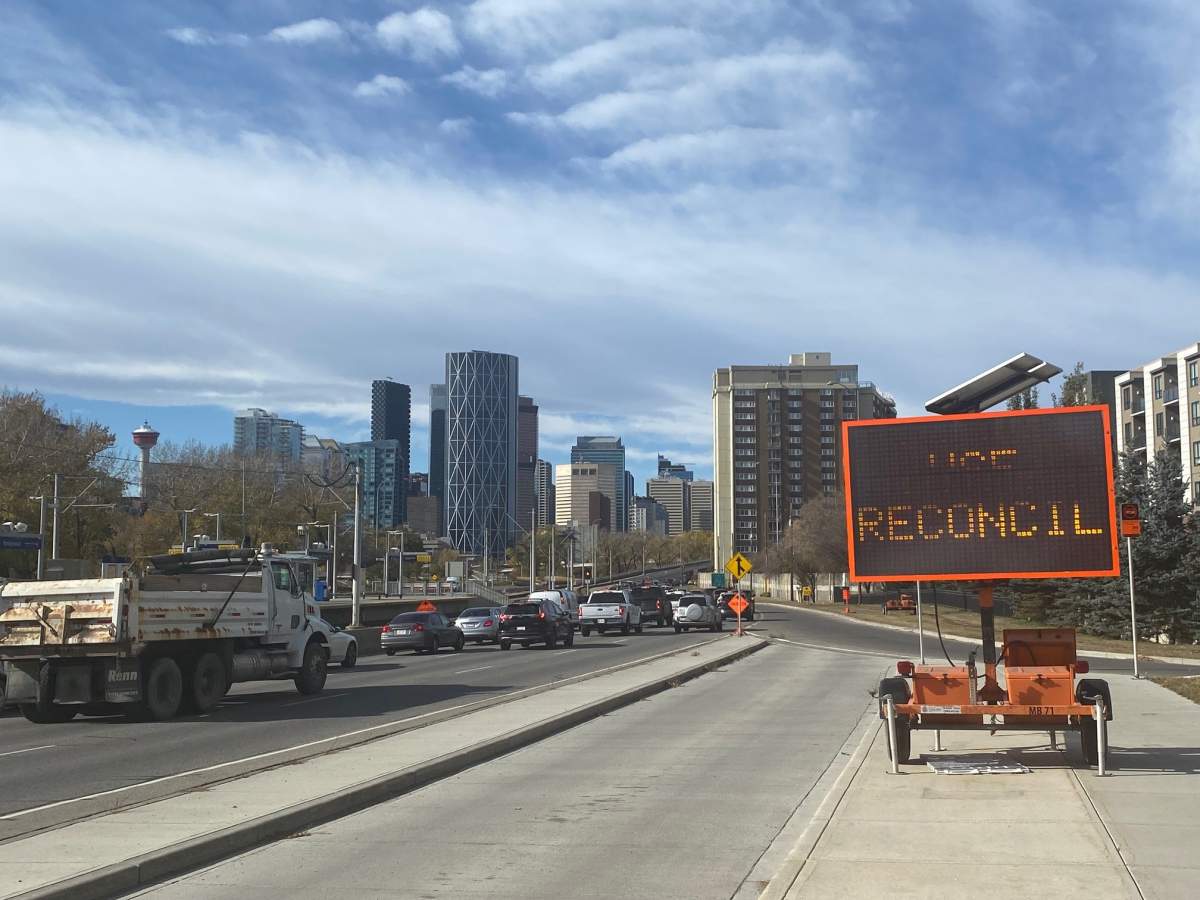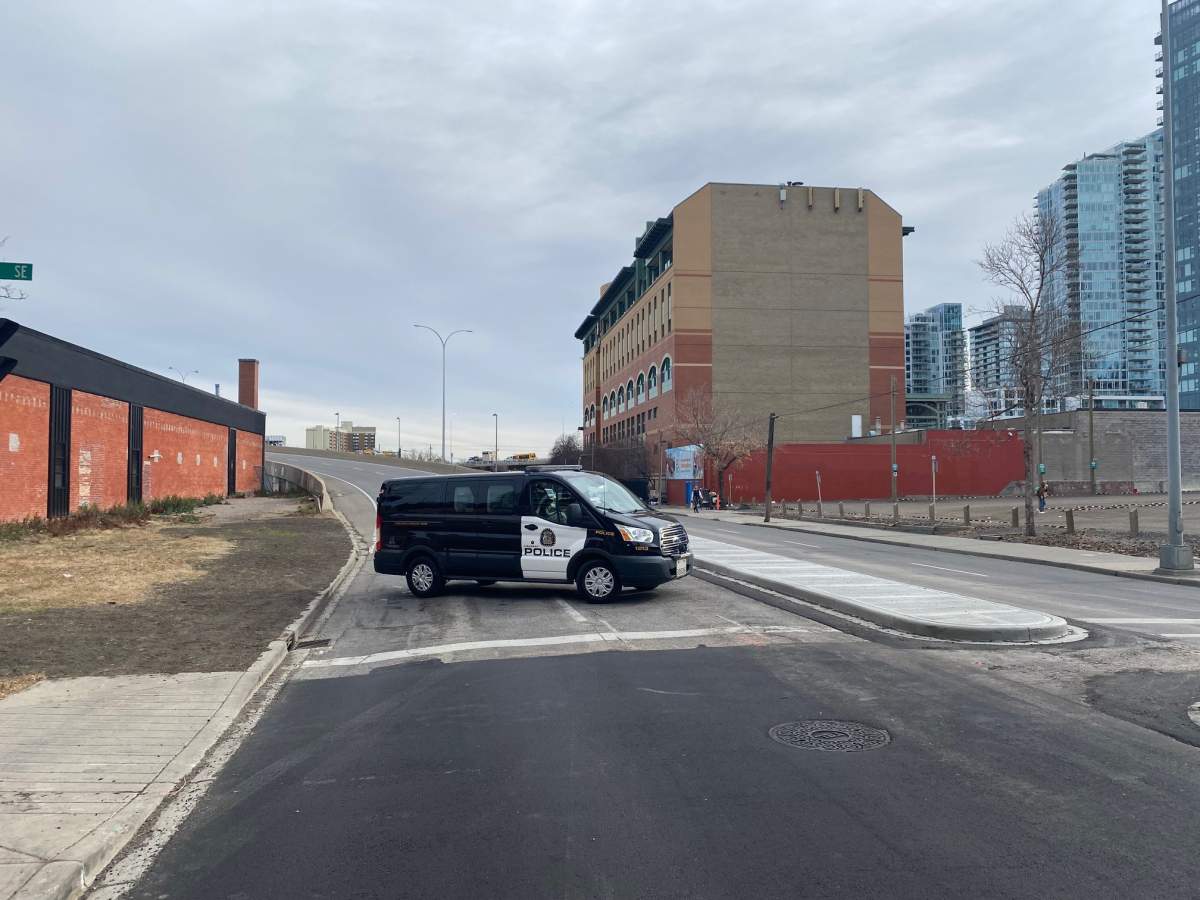Closing one of Calgary’s main thoroughfares into the downtown core isn’t a decision the city takes lightly, specifically when someone wants to shoot a movie.

The 4 Avenue flyoever was closed most of Friday and will remain so over the weekend, while the city said a film crew is busy at work.
The project left commuters with big delays as they made their way west along Memorial Drive most of Friday.
But it’s a small price to pay for the courtship of big budget film productions that increasingly want to do business in Alberta.
“The types and size of shows that we’re getting in Alberta are significantly larger than they have been in the past,” said Luke Azevedo, a film commissioner at Calgary Economic Development.

Get breaking National news
“And so with that comes the need to be able to facilitate larger capacity.”
The video game-turned-streaming series The Last of Us is no exception.
The HBO series, with a production budget reportedly exceeding $10 million an episode, is generating significant income for Alberta, and specifically for the town of High River, Alta.
The neighbourhood of Beachwood, which was heavily damaged in the historic 2013 flood, made a perfect set for the post-apocalyptic series. The province bought out the badly-damaged homes, which were removed from the area, while the streets are still there.
Funding the town receives from a film production would normally be split evenly between the town’s Community Vitality Advisory Committee and public arts. In this case, HBO requested that the $100,000 be used for a legacy project for children who call the town home.
Earlier this week, town council decided to hand over the vast majority of that money ($80,000) to the High River Bike Park Society’s pump track project in the northwest corner of town.
“Who knew zombies could build pump tracks? This is just incredible,” said Ashleigh Baron, one of the fundraisers with the High River Bike Soceity.
Production spending in Alberta this year is expected to double Alberta’s usual benefit, creating thousands of jobs.
“The impact on our province this year will be in the range of $500 million worth of production spend in and around Alberta, along with the absorption of over 450,000 square feet of space in warehouse and office space and our industrial area that has now been converted for long-term use of film and television,” Azevedo said.
The city won’t say who’s behind this recent production disrupting traffic, or exactly how much they’re billing the company for the significant effort involved in shutting down the flyover this weekend.










Comments